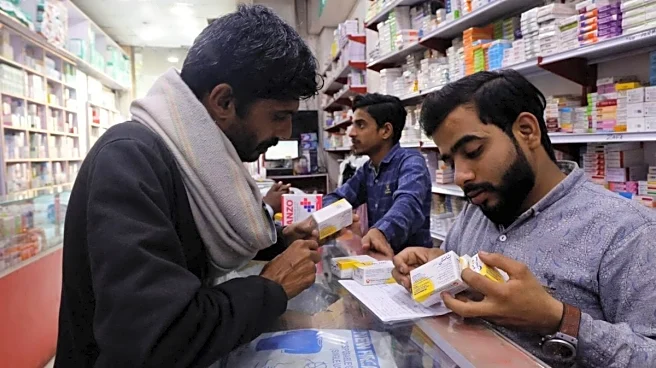Triggered by multiple child deaths linked to contaminated cough syrups, the apex drug regulatory authority, Drugs Controller General of India (DCGI), has issued a nationwide directive requiring every retail
and wholesale pharmacy to display a QR code that enables people to report side effects of medicines directly to India’s Pharmacovigilance Programme (PvPI), News18 has learnt.
In a circular dated November 20, 2025, the DCGI said this mandate is part of the government’s ongoing effort to “improve drug safety”.
What the order says
According to the order, seen by News18, the decision was taken “during the 16th Working Group Meeting of the Pharmacovigilance Programme of India (PvPI)…” The circular instructs all state and union territories licensing authorities that “all state licensing authorities and union territory drug licensing authorities shall ensure the display of the designated QR Code at a prominent location within every retail and wholesale pharmacy premises across the country”.
Along with the QR code, pharmacies must also display the toll-free helpline. The circular states that “the toll-free number…shall also be clearly displayed with the QR code at each pharmacy outlet”.
The poster issued by the central government prominently features the toll-free number & QR code, saying, “If you experience/suspect any adverse event after taking medicine, kindly report…”
This move is significant because India continues to face widespread under-reporting of adverse drug reactions, even though it is one of the world’s largest consumers and manufacturers of medicines.
“Most patients are unaware that they can directly report side effects. Making QR codes and helpline numbers compulsory at every pharmacy creates a simple, visible, and immediate way for people to flag problems with medicines they use,” said a senior bureaucrat privy to the development. “If side effects of the cough syrup contamination among children were immediately reported, we could have prevented the deaths of many other children.”
Strengthening this feedback loop gives regulators earlier warning signals about unsafe batches, unexpected reactions, or quality issues, ultimately helping prevent harm, improve oversight of marketed drugs, and build a stronger culture of pharmacovigilance in the country.
Why the move
The government says this will make it easier for the public and healthcare workers to report any adverse reactions from medicines. The circular explains that the measure “will facilitate seamless reporting of Adverse Events/Adverse Drug Reactions (AE/ADRs) by the public and healthcare professionals through the indigenous PvPI Adverse Drug Reaction Monitoring System (ADRMS).”
The DCGI has also asked authorities to begin enforcement immediately. The circular requests them “to initiate immediate action for implementation of the above instructions within your jurisdiction. Kindly ensure wide dissemination among all the license holders and monitor strict compliance with these directives to promote drug safety and protect public health.”
The order, dated November 20, is signed by DCGI Rajeev Singh Raghuvanshi, who writes that the authorities’ “continual support and cooperation towards strengthening pharmacovigilance practices in India are highly appreciated”.


/images/ppid_59c68470-image-1770987582774322.webp)

/images/ppid_59c68470-image-177098761981591595.webp)
/images/ppid_59c68470-image-1770987529810585.webp)
/images/ppid_59c68470-image-177098766350256772.webp)

/images/ppid_59c68470-image-177098756909942437.webp)
/images/ppid_59c68470-image-177098752880979418.webp)

